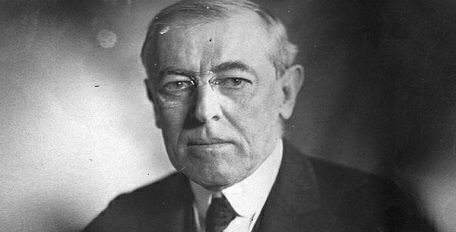March 15 has a special place in history, thanks to William Shakespeare’s use of the “Ides of March” theme in his play, “Julius Caesar.” So what is an Ides and do big historical things really happen then?

The word “Ides” is a Latin term for the day that falls in the middle of a calendar month. There were three Ides where the date fell on the 15th – March, July and October. In 46 B.C., Julius Caesar introduced the Julian calendar, and it was on March 15 in the year 44 B.C. that Caesar assassinated by his fellow Roman leaders. He was actually killed inside Rome’s Senate chamber, where Caesar’s bodyguards weren’t permitted to enter.
In Shakespeare’s 1599 play, the author had the character of Caesar utter the Latin words, “Et tu Brute?” or “You, too, Brutus?” as he was attacked by former protégé Marcus Junius Brutus. Historians don’t really know if this happened at the actual assassination, but the phrase became synonymous with the concept of betrayal.
Since then, some folks have kept a wary eye on March 15, but not everything that has happened in mid-March has been a tinged with badness. Here are 10 landmark events that happened on a March 15th.
1767: Andrew Jackson is born. The future U.S. President was born a region that sits in both North Carolina and South Carolina.
1781: The Battle of Guilford Court House. Outnumbered British forces led by Lord Cornwallis route an American revolutionary army in North Carolina.
1783: Washington averts Army mutiny. George Washington convinces Continental Army officers to step down from a potential mutiny because of lack of payment from Congress.
1820: Maine becomes the 23rd state. Maine gains admission to the Union as part of the Missouri Compromise.
1913: Wilson holds the first Presidential press conference ever. The new President holds an official press event for about 100 reporters at the White House where he speaks to them as a group.
1916: Wilson orders troops to Mexico. President Woodrow Wilson orders a force of more than 4,000 U.S. troops to cross the border in an attempt to disrupt Pancho Villa.
1917: Tsar Nicholas II abdicates in Russia. The Tsar was unable to find a functional successor, which was a key moment in the Russian Revolution.
1965: Johnson urges passage of Voting Rights Act. About one week after the violence in Selma, Alabama, President Lyndon Johnson tells Congress it must pass the Act in a nighttime address to lawmakers and the nation.
1985: First Internet domain name registered. It was called symbolics.com and it belonged to Massachusetts computer company.
1990: Mikhail Gorbachev is elected as President of the Soviet Union. Gorbachev served in this elected position, which was new to the Soviet Union, until December 25, 1991.
Recent Historical Stories on Constitution Daily
10 little-known facts about President Theodore Roosevelt50 interesting facts about Abraham Lincoln’s lifeThe mysterious death of George Washington10 facts about Thomas Jefferson for his 273rd birthday





